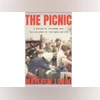THE PICNIC: A Dream of Freedom and the Collapse of the Iron Curtain
Author: Matthew Longo
Publisher: Norton
Pages: 304
Price: $28.95
Also Read
“Gorbachev will pay for his sins! I can’t stand the sight of his pig’s mug!” On a winter day early in 2001, Grigori Romanov, once the party boss of Leningrad and an odds-on favourite to take over the Kremlin, stood on a Moscow sidewalk ranting to me, a Moscow correspondent for Time, about Mikhail Gorbachev.
In the spring of 1985, Romanov had famously lost his shot at the government’s top post to the prematurely balding apparatchik from Russia’s south. It was Gorbachev — “a peasant who had no right coming to the big city,” Romanov all but shouted at me — who “started this disaster.”
The people in the borderlands between East and West, above all, the Hungarians, Poles, Czechs, Slovaks and East Germans, may disagree: The millions trapped for decades in the Soviet bloc can claim a bit of the credit for its disintegration. And so it’s only fitting that in The Picnic, Matthew Longo, an American political scientist who teaches in the Netherlands, revisits in captivating detail the actions of ordinary people during that heady summer of 1989, when the Iron Curtain cracked and a magical word — “freedom” — swept across the Eastern bloc. Within two years, the Soviet empire was over.
The story of 1989 is hardly terra incognita. But timing is everything. Three decades hence, we are witnessing the return of history: Russia’s territorial ambition is again on display, in ways more consequential than anything since the beginning of the Cold War.
Professor Longo sets himself a tight focus: the “Pan-European Picnic,” a stunt of political theatre — organised by “budding” oppositionists (including the future prime minister of Hungary Viktor Orban, then a 26-year-old “with wild black hair and fire in his eyes”) and encouraged by a few reform-minded Communist higher-ups — that turned into political action. The picnic, a “giant, open-air party” convened on August 19, 1989, and attended by hundreds, surprised all by forcing open the barbed-wire border between Austria and Hungary.
Blending oral history and political theory (including cameos by Plato and Isaiah Berlin), Professor Longo recounts the drama in a vivid, fast-paced narrative. A centrepiece is a revelatory sit-down: Miklos Nemeth, the Harvard-trained economist-turned-Communist prime minister of Hungary who embraced radical change, entertains Professor Longo at his retirement cottage amid the vineyards by Lake Balaton — and opens a document trove. Yet throughout, the author’s argument rings clear: “Sometimes the most important moments in history are forged by ordinary people.”
For Professor Longo, the picnic was a revolutionary moment, bringing not only euphoria but an estimated 600 East Germans (in Hungary on “vacation”) across the border. “The scene was utter chaos,” Professor Longo writes. “East Germans celebrating on the other side of the line; Hungarian officers in heated conversations; Austrians walking into Hungary, Hungarians crossing into Austria.” Three months later, the Berlin Wall fell. And in August 1991 — on the second anniversary of the picnic — a crew of revanchist putschists failed miserably in Moscow, speeding the demise of the Soviet Union.
Professor Longo aims high: Not only to revisit the field in Sopronpuszta, now “desolate” and “emptied” of history, but to tell us how we got “from tearing down the Berlin Wall to our new age of erecting barriers.” It’s an admirable goal, and he comes close to achieving it. Yet his cast is so large that one yearns for a key, and he oddly favours the paraphrase over a quote.
Amid the rush of events, the analysis occasionally stumbles. Recounting how Nemeth met Gorbachev during a visit by the Soviet apparatchik to Hungary in 1984, Professor Longo describes their unexpected affinity: “By the end of the trip, they were on a first-name basis,” he writes, adding, “Nemeth still uses the patronymic when he speaks of Gorbachev today.” In fact, a patronymic connotes distance, not familiarity. Elsewhere, recalling a joke about Communism he writes: “You pretend to work, and we pretend to pay you.” He goes on: “It was a joke made by us, for us. It cast a world we didn’t know into terms we did.” Actually, it was a Soviet joke, one dating at least to Brezhnev’s rule. Such slips undermine Professor Longo’s contention that “we were so deafened by our own ideology we couldn’t hear” the “xenophobic vision” behind the 1989 “calls for national freedom.”
“We don’t talk anymore about freedom like we did in 1989,” Professor Longo writes, “freedom for collectivities, continents even; freedom for people fleeing oppression, wherever it is they were coming from.” He is right. And yet, he falls short on the how-we-got-here part, dispensing with “the transition to capitalism” in a few sentences, terming it a period when many Hungarians felt “as though they had just freed themselves from the shackle of one master — Moscow — only to fall into the arms of a new one — Brussels.” Professor Longo cannot fail to note Mr Orban’s devolution into autocracy, including his “anti-immigration politics.” Mr Orban “started getting closer to Putin’s Moscow,” he writes. “It was as though 1989 had never happened.”
“All nations should have the opportunity for freedom,” Gorbachev said in one of his final interviews. This may sound like wishful thinking. But it happened to be the foolhardy belief that animated the ordinary heroes of Professor Longo’s tale, both those who acted (politicians and civilians) and, just as vitally, those who did not (border guards and party lifers, who owed all they had ever known to the status quo), as well as, not least, the “peasant” who rose to the Kremlin.
The reviewer is a former Moscow correspondent for Time. ©2023 The New York Times News Service

)
